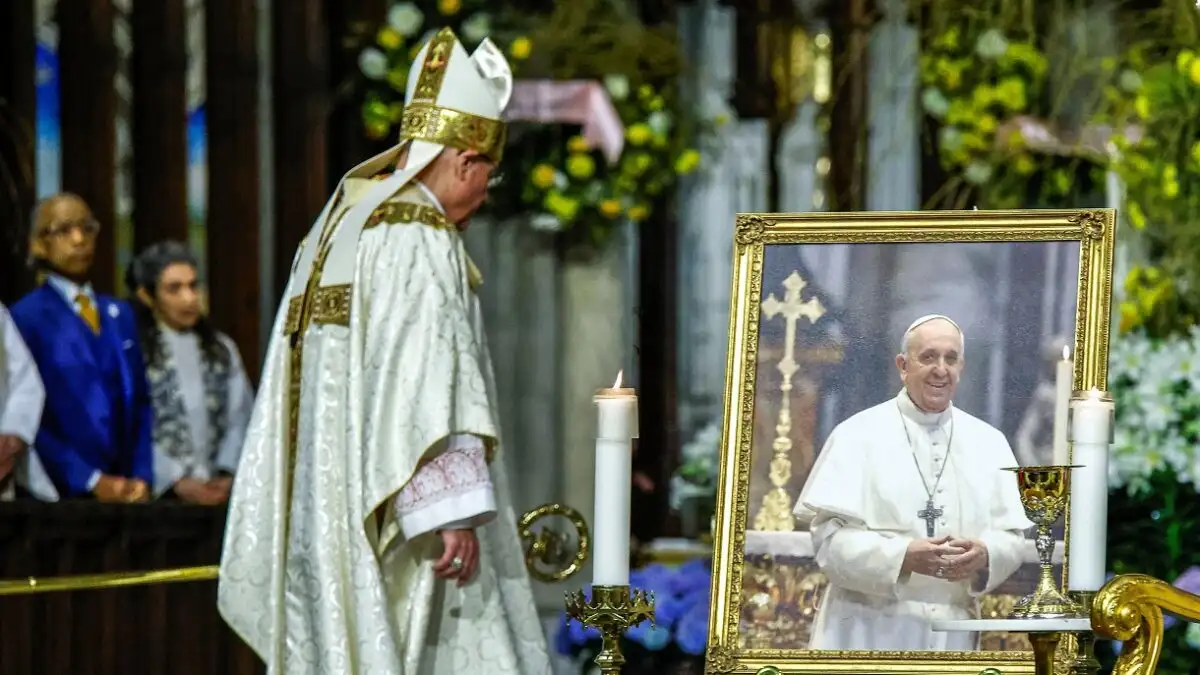Pope Francis, the first pope from the Americas and the first Jesuit to hold the papal office, has been a figure of both admiration and contention since his election in 2013. Known for his progressive stances on social issues and his emphasis on humility and compassion, Pope Francis has navigated a complex landscape of tradition and modernity within the Catholic Church. His leadership style and policy changes have sparked debates that resonate across religious and secular spheres alike.
Throughout his papacy, Pope Francis has faced numerous controversies that have challenged the very fabric of the Catholic Church. From addressing the long-standing issue of sexual abuse to redefining the Church's stance on various social issues, his tenure has been marked by bold decisions and transformative reforms. This article delves into the key controversies surrounding Pope Francis, exploring the debates and challenges that have defined his time as the spiritual leader of over a billion Catholics worldwide.
The Sexual Abuse Crisis: A Persistent Challenge
One of the most enduring controversies during Pope Francis' papacy has been his approach to the Catholic Church's sexual abuse crisis. While he acknowledged the gravity of the issue and implemented measures to address it, critics argue that his actions were insufficient. Pope Francis established the Pontifical Commission for the Protection of Minors to tackle the problem systematically, but some feel that more decisive action is needed to hold perpetrators accountable.
Despite these efforts, the perception remains that the Church's response has been slow and inadequate. Survivors and advocacy groups have called for greater transparency and justice, urging the Vatican to adopt stricter policies and enforce them globally. The Pope's handling of specific cases, such as those involving high-ranking clergy accused of abuse or cover-ups, has further fueled criticism.
Pope Francis' commitment to reforming the Church's response to sexual abuse is evident in his public statements and initiatives. However, the challenge lies in balancing institutional change with the deeply entrenched traditions of the Church. As the debate continues, the Pope's legacy will be closely tied to how effectively he addresses this critical issue.
A Divided Church: Progressive Reforms and Traditional Resistance
Pope Francis' push for progressive reforms has highlighted the ideological divide within the Catholic Church. In America, particularly, the Church is home to factions with opposing views on doctrine and practice. Some traditionalists view the Pope's efforts to modernize the Church as a deviation from established teachings, while progressives see them as necessary steps toward inclusivity and relevance in contemporary society.
Issues such as liturgical practices, clerical celibacy, and the role of women in the Church have become focal points of contention. The Pope's openness to discussing these topics has sparked heated debates among theologians, clergy, and laypeople alike. His encyclicals, such as Laudato Si' on environmental stewardship and Fratelli Tutti on fraternity and social friendship, reflect his vision of a more compassionate and outward-looking Church.
While these reforms aim to revitalize the Church, they also risk alienating those who cling to traditional values. The tension between progress and preservation underscores the complexity of Pope Francis' mission to unite a diverse global community under one faith.
Spiritual Leadership Amidst Controversy
In his homeland of Argentina, Pope Francis was both a source of controversy and spiritual guidance. His influence extended beyond the confines of the Church, shaping public discourse on morality and ethics. Even as detractors questioned his doctrinal positions, many faithful found solace in his message of mercy and hope.
For instance, the cathedral where Pope Francis once served as archbishop became a site of pilgrimage during his papacy. Devotees gathered there to honor his memory and reflect on his teachings. These gatherings demonstrated the profound impact he had on his followers, transcending the controversies that surrounded him.
As a spiritual leader, Pope Francis sought to bridge divides and foster unity. His ability to connect with people from all walks of life earned him widespread respect, even if his policies provoked disagreement. The duality of his role as both a reformer and a unifier reflects the multifaceted nature of his papacy.
Growing Dissent Within the Ranks
Pope Francis' willingness to challenge established norms has not gone unnoticed, sparking growing dissent within the Church hierarchy. His softening of rhetoric on contentious issues like same-sex relationships and divorce has drawn criticism from conservative factions. These groups perceive his approach as compromising the Church's core teachings and identity.
Moreover, the so-called dubia controversy exemplifies the tensions between the Pope and certain segments of the clergy. When cardinals publicly questioned his interpretation of church doctrine, it highlighted the deep divisions within the ranks. Despite reaffirming traditional beliefs, the incident underscored the ongoing struggle to reconcile differing perspectives.
As Pope Francis navigates these challenges, he must balance innovation with continuity. The future of the Catholic Church depends on his ability to address internal dissent while maintaining its universal appeal. This delicate equilibrium defines the essence of his papacy and its lasting impact on the institution.
A Legacy Shaped by Change
Pope Francis served as the head of the Catholic Church and sovereign of the Vatican City State for over a decade, leaving an indelible mark on its history. His groundbreaking initiatives and controversial decisions have reshaped the Church's relationship with the modern world. As the first pope from the Southern Hemisphere, he brought a unique perspective to the papal office, emphasizing themes of social justice and ecological responsibility.
His death in 2025 marked the end of an era, prompting reflection on his achievements and shortcomings. While some hailed him as a visionary leader, others viewed him as a polarizing figure whose reforms threatened the Church's stability. Regardless of individual opinions, Pope Francis' contributions to the Church's evolution cannot be denied.
As historians and theologians assess his legacy, they will undoubtedly focus on his efforts to modernize the Church while preserving its timeless principles. The debates and controversies that characterized his papacy will continue to shape the Catholic Church's trajectory in the years to come.

